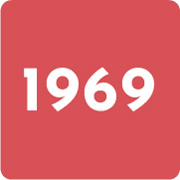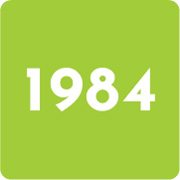About Us
It is PACCC’s honorable mission to serve as many families as possible and help to build the future of our community through its most precious asset – the children. Since 1974, PACCC has pursued its non-profit mission of providing exceptional education and care for Palo Alto’s children, regardless of a family’s financial circumstances, with unwavering determination.
It all began when six progressive mothers recognized the growing demand for quality, affordable childcare and presented this need to the Palo Alto City Council. City Council then formed the Child Care Task Force, which recommended that the City take an active and supportive role in early childhood education and care. City Council’s first directive was to establish a childcare-focused nonprofit. This original vision and advocacy later became the blueprint for PACCC.
What began as a few centers in the 1970s became the PACCC we know today, which serves the needs of more than 775 children daily; providing developmentally-appropriate education and care for children from as young as two months old through fifth grade at 19 centers throughout Palo Alto, 52 weeks of the year.
In alignment with our long-standing partners, the City of Palo Alto, Palo Alto Unified School District, California Department of Social Services and California Department of Education, PACCC is committed to serving the current and future needs of Palo Alto’s families, and actively works to eliminate barriers. Over one-third of enrollment spots are designated for financial assistance through our long-standing partners and PACCC’s own fundraising efforts.
To invest in the exceptional education and care of our children is to help build a thriving community our children can always call ‘home’ – not just in Palo Alto, but in the world at large. This investment in our future is a challenge we have accepted with the utmost pride, determination, and care for more than 50 years!
Read how PACCC Celebrates 50 Years of Childhood Education and Care >>
PACCC Timeline

PACCC History
Planting The Seed
In 1969, six forward-thinking mothers had the courage to speak up to the City Council about the growing need for quality, affordable childcare in Palo Alto. Subsequently, in 1971, the Child Care Task Force appointed by the Palo Alto City Council recommended that the City take an active and supportive role in the provision of childcare and related services, and that a non-profit corporation be established to implement and coordinate the Task Force's recommendations.
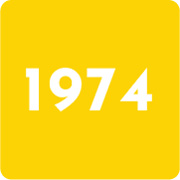
Founding PACCC
Palo Alto Community Child Care (PACCC) was created and incorporated as a 501(c)(3) organization in March 1974 to carry out the various components of the Task Force Plan. The Plan called for the creation of a sick care program, an infant-toddler center, a preschool center, and two part-time centers. Other elements of the Plan included the licensing of 35 day care homes; the subsidizing of low-income children at two non-PACCC centers; and the hiring of the City Child Care Coordinator who would also serve as the Executive Director of PACCC.
Sustainability
For the next ten years, PACCC operated seven childcare centers, seven independent "affiliate" centers, and a network of 25 family childcare providers. One of the City's childcare goals was to see the administration of PACCC centers become self-supporting. Accordingly, in 1984, the City of Palo Alto began to reduce its administrative subsidy to PACCC.
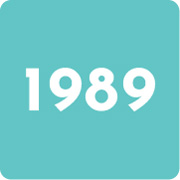
Expansion
In 1989, with the passage of the utility users' tax, afterschool care facilities were established at every elementary school site. PACCC became a major provider of school-age care, and the number of PACCC centers increased from 7 to 15.
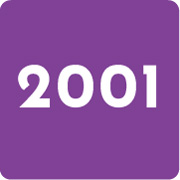
Accessibility
In September 2001, PACCC assumed responsibility for administering the Child Development Subsidy Program formerly implemented by the Palo Alto Unified School District, including the administration of two additional centers.

Community Involvement and Leadership
In 2014, PACCC received the Tall Tree Award for Outstanding Nonprofit from Palo Alto Chamber of Commerce, “Given to a nonprofit that has made a substantial contribution to the lasting enhancement of Palo Alto while demonstrating exceptional leadership and community involvement…Honorees are selected based on their local impact, breadth of contribution, diversity of individuals impacted, timeliness and originality of contribution."
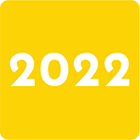
A New Bridge Between Preschool & Kindergarten
90% of brain growth happens before kindergarten, and preschool and transitional kindergarten are stepping stones to kindergarten. In collaboration with Palo Alto Unified School District (PAUSD), PACCC expanded programming to include transitional kindergarten (TK) afterschool care at its Kids’ Clubs in 2022. The Palo Alto Community Fund supported the expansion by awarding PACCC with the Dave Mitchell Impact Grant to fund staff training, curriculum to align with the PAUSD Promise, and developmentally appropriate equipment and instructional supplies.
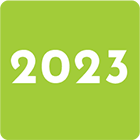
Eliminating Barriers
PACCC actively works to eliminate barriers to access and advocate for affordable and accessible childcare options for all families. In 2023, PACCC opened 126 afterschool care spaces for PAUSD’s Expanded Learning Opportunities Program (ELO-P). As noted in a PAUSD newsletter, “PACCC continues to support local working families via government and private funding. As part of the Education Code, the legislature has focused on programs that supplement school-day learning. Such additions are intended to not only augment academic needs, but also support the emotional, physical, and social needs of children both before and after school and also during summer or intersession learning programs.”

